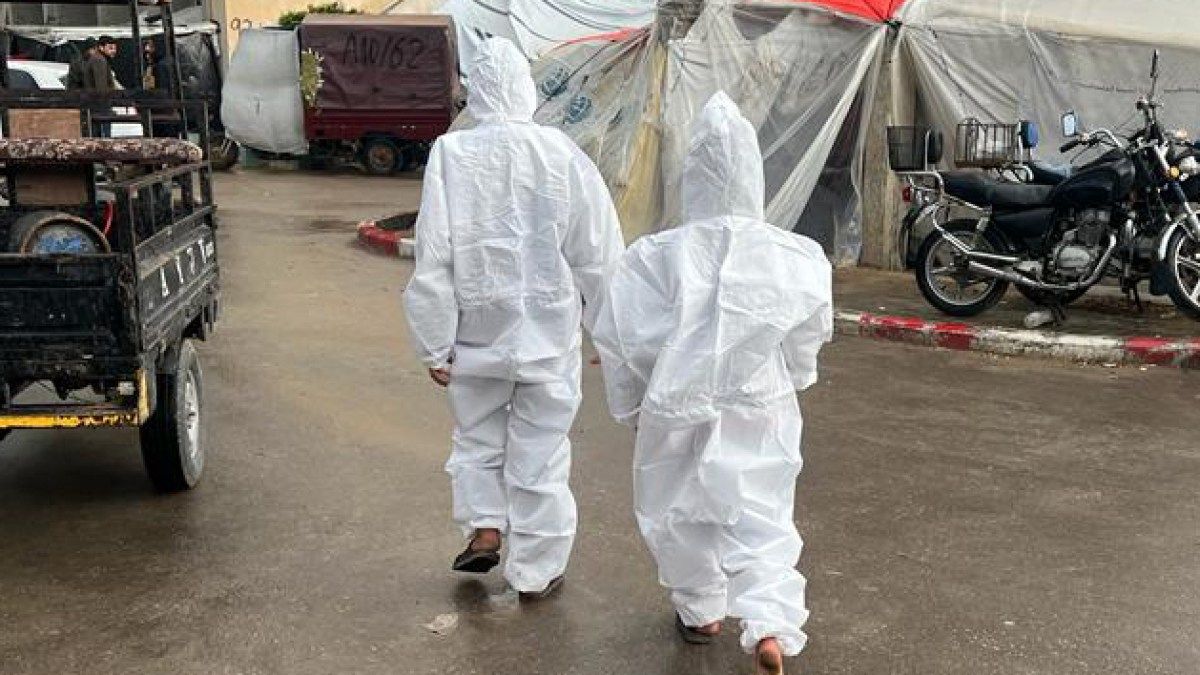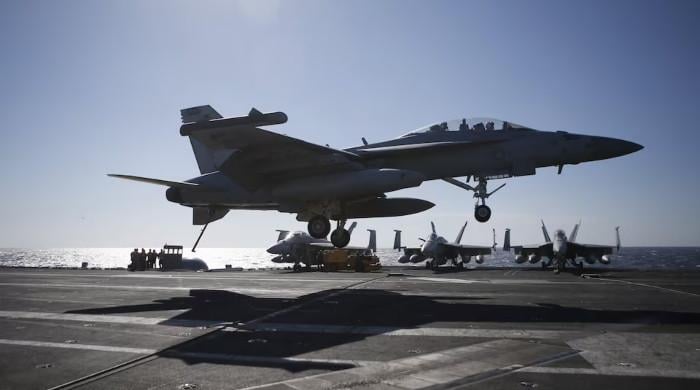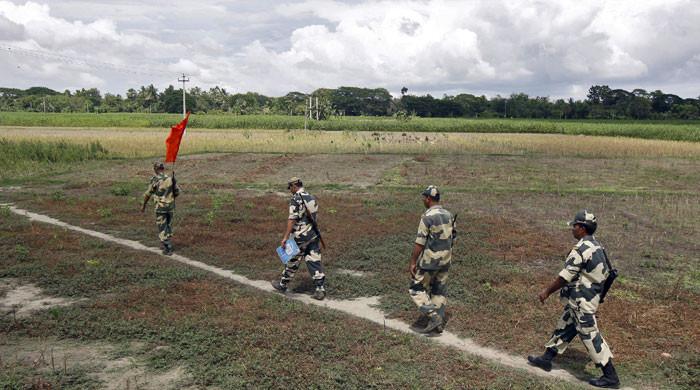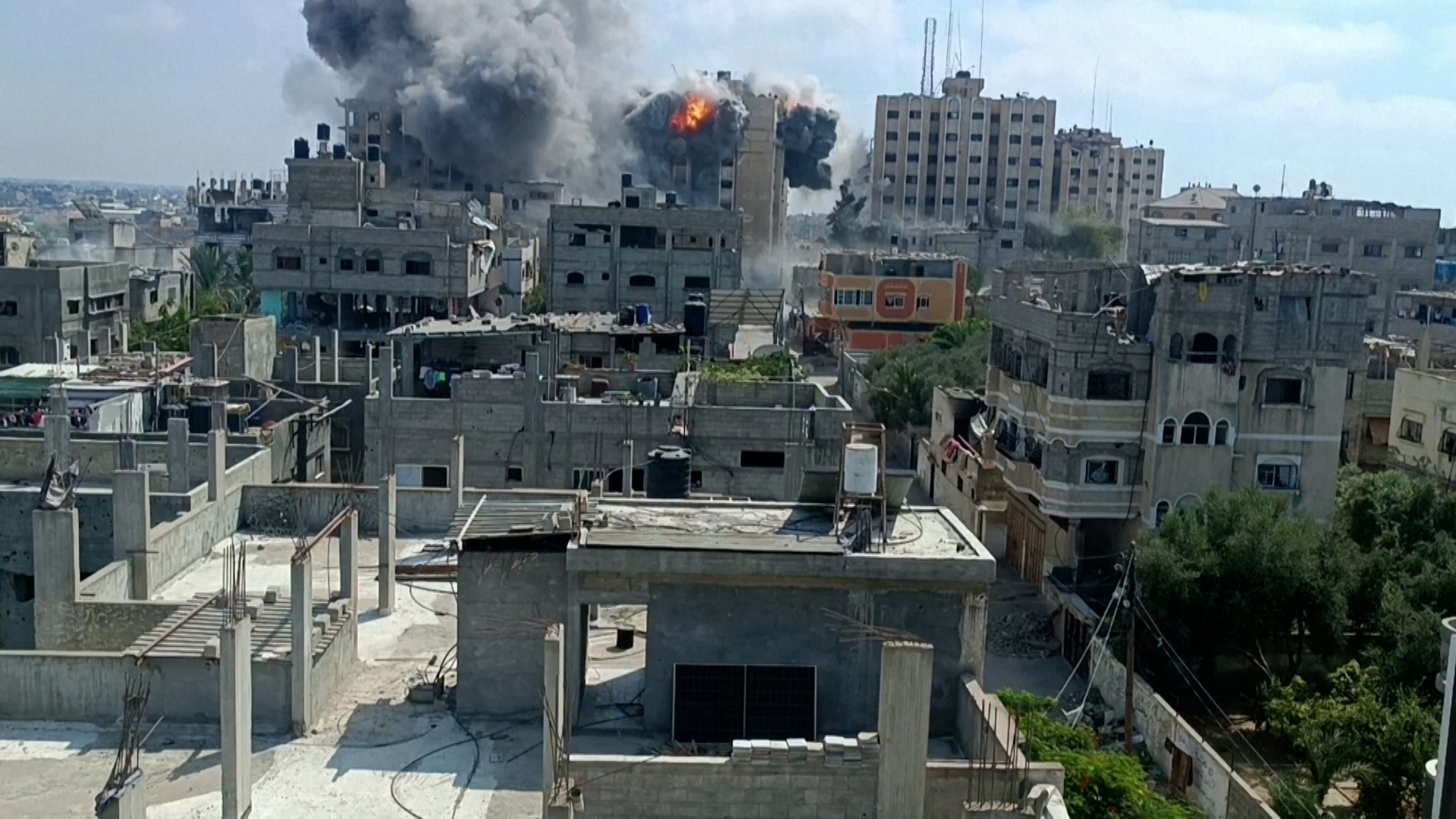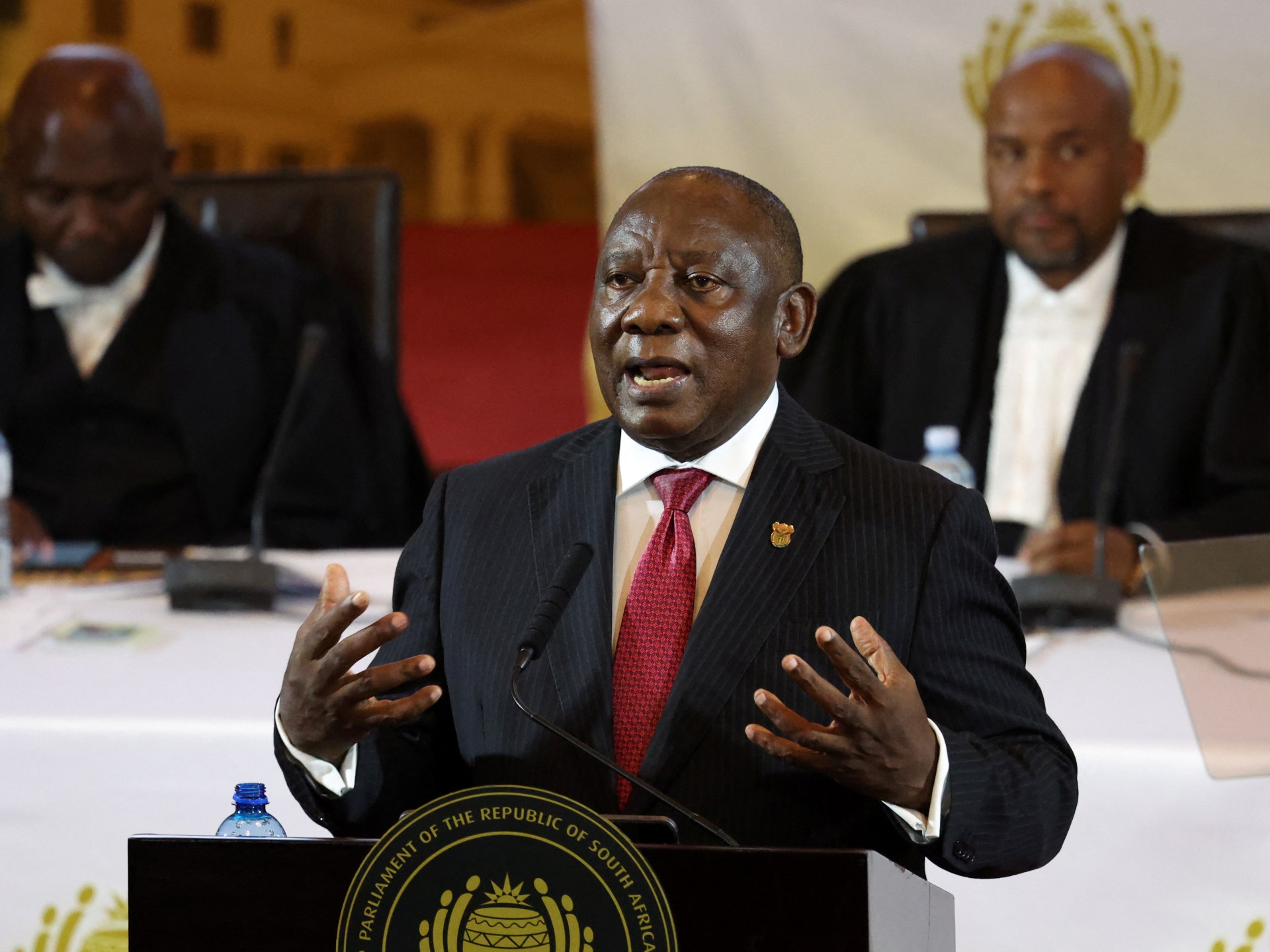Rafah, Miradora Strip – Running out of options and solutions, parents in Gaza have resorted to putting their children in the white medical coveralls that were part of the COVID-19 PPE kits, in a desperate attempt to keep them warm and dry.
Gaza's displaced people – many of whom have been forced to move multiple times – are suffering the severe winter cold with little to protect them from the elements, other than, at best, thin tents.
For many of the 1.4 million people crammed into Rafah after fleeing other parts of Gaza, the only clothes they own are the ones on their backs. If they get wet, there is little chance that they will dry out again in the cold.
In some areas, teams are distributing white coveralls left over from the pandemic: They are lined with plastic and keep at least some of the humidity at bay.
'Like an astronaut'
Nour al-Bayouk, 11, dressed in overalls, explains that he, his parents and sisters came here from Maan to escape the bombing.
“We came here to [European] hospital to stay in a tent. The tent is very cold and does not protect us from the heavy rain.”
When the trucks arrived loaded with the white jumpsuits, he and his sisters rushed to get them. Now they live in them, day and night.
“I'm warm and the water doesn't get on my clothes,” says Nour. “I don't have any alternative clothes. If my clothes get wet I won't find anything else to wear.
“At first I looked funny and scary. I felt like I looked like a person undergoing surgery or an astronaut.
“I laugh every time I see myself in the car windows.”
It has become familiar now, as more children do the same.
“The hospital is full of cold tents,” says Nour. “I used to have a room with a warm mattress but we left and came here looking for safety. Every day we hear bombings. The tanks have not stopped for a single moment.”
At one point, the tanks appeared to have withdrawn from Maan and Nour's father tried to go to his house to get more clothes.
“But the quadcopters shot at them and he couldn't get to the house. That is why we find in these suits an opportunity to save ourselves from the cold and rain.”
Raeda al-Khair, 35, originally from Gaza City in the north, managed to find space for her family at the European Hospital in Rafah in December. They had fled Khan Younis, where they had taken refuge until the tanks arrived in early December.
She says: “We came here with nothing. We thought we would return to our homes. I slept in the hospital hallways on the tiles; “The extreme cold exhausted my body and that of my children.”
Her husband set up a makeshift tent with plastic sheets and some hospital blankets in the hospital's outdoor courtyard. But the cold has worsened and the family is struggling.
“When it rains I feel like crying because the children get sick from the cold. Since the beginning of the displacement, my children have never recovered.”
Al-Khair saw one of the nearby families dressing their children in the monkey and decided to do the same.
“He told me that it is lined on the inside and prevents water from entering. “It is a good idea for us as mothers because the children have no alternative clothing and there is no place to wash or dry them.”
Life in the shops is becoming unbearable, he says. “Two mornings ago, my five-year-old daughter Salma woke up wet from the rain falling on her. She was shivering badly from the cold. She was very sick and had a high temperature.
“I went out to look for this too because there are many sizes and anyone can use it.”

“I hope this nightmare ends”
Salem Baris, 55, fled to al-Mawasi with her children and grandchildren, including a total of 10 younger children, all dressed in white overalls.
He came to this part of Rafah from Khan Younis when it became too dangerous to stay, he told Al Jazeera.
“Suddenly, the tanks entered behind Al-Khair hospital and Al-Aqsa University. [in Khan Younis]. I went with my children and grandchildren, more than 10 children with me.
“I had not left my house since the beginning of the war, but I was forced to do so because the tank shells hit our houses. Clashes between the army and the resistance continued and I feared that one of my children would be injured.
“We stayed at the checkpoint waiting for permission until the army allowed us to enter. I was holding my grandson while he looked at the tank and he was very scared. “All my grandchildren were afraid because, for the first time, they saw tanks and soldiers.”
Baris took his family to join his cousin, who had two tents in Rafah. “We arrived and the children were wet from the rain and very sick. They had such severe colds. I discovered that my cousin had a lot of white uniforms and I made the kids wear them. They didn't like her.”
Before putting on the jumpsuit, Baris said, she had to sit in the sun with the children for hours to let their clothes dry.
Nylon jumpsuits have made things better, he says.
“We are trying to live with war conditions, but they are very difficult. I hope this nightmare ends and I can return home soon.”

